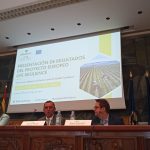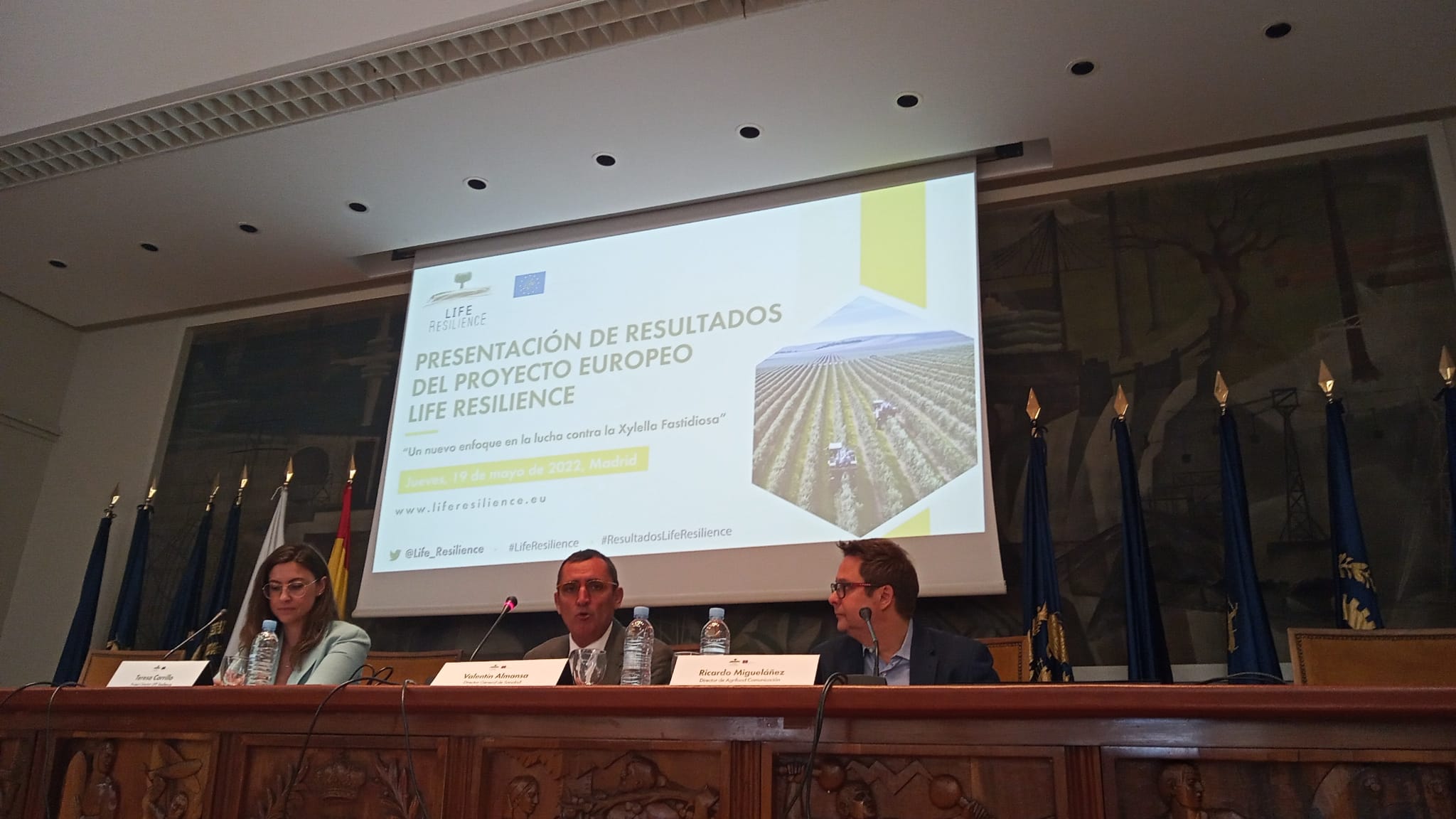 LIFE Resilience, a project co-funded by the European Union (EU) LIFE programme, is coming to an end after four years of intense work investigating the best sustainable practices for the prevention of Xylella fastidiosa in high-density olive and almond orchards.
LIFE Resilience, a project co-funded by the European Union (EU) LIFE programme, is coming to an end after four years of intense work investigating the best sustainable practices for the prevention of Xylella fastidiosa in high-density olive and almond orchards.
Thus, the project partners presented the results of this initiative in a final conference entitled ‘A new approach against Xylella fastidiosa’, in which the main achievements were presented, as well as the key challenges and solutions related to this problem that affects numerous crops and that has set the alarm throughout Europe since its detection in Italy in 2013.
The event was opened by Valentín Almansa, Director General of Agricultural Production Health of the Ministry of Agriculture, Fisheries and Food.
During the event, Teresa Carrillo, project director of Life Resilience and director of R&D at Balam Agriculture, insisted on the importance of this type of project and how the use of good practices has favoured both crop biodiversity and improved plant health on farms, contributing to more sustainable products. A replicable model of best practices for olive, almond and other woody crops, such as citrus and vines in Europe, also increasing their capacity to adapt to climate change and future epidemics.
Carlos Trapero, researcher at the University of Cordoba, recalled that 18 new genotypes resistant to Xylella fastidiosa have been obtained, which have been sent both to the Xylella zero zone in Scorrano, Puglia (Italy) and to two more plantations located in Lucca, Tuscany, (Italy) owned by «Villa Filippo Berio», partner of the project, and to the experimental farm of the company «Balam Agriculture» (Finca El Valenciano) to continue with their agronomic evaluation.
In addition, during the day, the development of an insect control system to find out who is carrying the bacterium was presented. This work was carried out by another of the partners, the Institute of Bioeconomics (IBE), belonging to the Consiglio Nazionale Delle Ricerche (CNR) of Italy, and the results were presented by the entomologist Anita Nencioni. The experts were able to verify the appropriate methodologies for measuring the number of insects present in olive groves, both with direct captures and with coloured sticky traps.
The CNR used several innovative tools in collaboration with the Pisa-based company Villa Filippo Berio. Coloured traps were tested for spittlebug trapping, images of foliage measured with LIDAR placed on a drone were used to verify plant growth in the different fields where the experiments were carried out, automatic traps were introduced to verify the presence of the olive fruit fly, satellite images were used to map the vegetative conditions of olive trees and identify areas with different needs. agronomic needs. Similarly, experts have applied several precision agriculture techniques to improve the agronomic management of olive groves and natural chemical products, never before tested in olive cultivation for the control of insect vectors, have been tested.
The importance of digitalisation in the sustainable management of farms was also highlighted at the conference. Jorge Blanco, head of R&D at Greenfield Technologies, a partner in the project, emphasised the significance of agricultural digitalisation, pointing out that it can be understood as a tool available to farmers to achieve more efficient management of their production systems. Likewise, it was recalled how this technique can mean a more attractive countryside that can strengthen the generational replacement and the fixation of the rural population.
The meeting also served to raise the role of Spain and Brussels in the dissemination of this type of sustainable practices to farmers. Actions that José María Castilla, director of the Asaja Permanent Office in Brussels, said were being passed on to Asaja farmers, as well as the varietal improvements and all the technical recommendations obtained from the development part of the project.
To conclude, the day featured the Round Table entitled ‘Agenda 2030-Sustainable Development Goals‘, in which aspects such as the importance of the Sustainable Development Goals for agriculture, the approach of the SDGs in the projects that are currently being developed in the agri-food sector were raised, technology as an ally of sustainability, the contribution of farmers and researchers to the fulfilment of the SDGs and the way in which Covid has promoted a paradigm shift in which the 2030 Agenda seems to be the best guide for a sustainable agricultural model.
